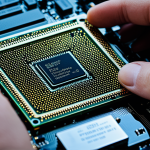Effects of Video Games on Learning in Computing
Video games in education play a significant role in introducing and reinforcing key computing concepts. Through interactive gameplay, students engage with abstract ideas like algorithms, data structures, and logic gates in a more tangible and memorable way. This active involvement helps deepen understanding beyond traditional teaching methods.
Gamified learning dramatically impacts student development by boosting motivation and sustained engagement. When computing lessons incorporate game elements—such as challenges and rewards—students often show higher persistence and enthusiasm. Research supports that educational video games improve problem-solving skills and conceptual grasp in computer science, making complex topics more accessible and less intimidating.
Have you seen this : What influence do UK video games have on pop culture?
Moreover, video games in education encourage exploration and experimentation, which enhances cognitive functions essential for computing, such as analytical thinking and debugging. When students learn by doing within a game environment, they develop a clearer mental model of how computing systems operate. The practical application embedded in game scenarios aligns perfectly with the hands-on nature expected in computing curricula, facilitating both retention and skill acquisition.
Effects of Video Games on Learning in Computing
Video games in education serve as powerful tools for introducing and reinforcing computing concepts. By embedding complex ideas within gameplay, these games help students grasp abstract topics like data structures, algorithms, and programming logic in a more intuitive way. The interactivity encourages deeper engagement, making learning feel less like a task and more like an immersive experience.
Also read : How Have Video Games Transformed Computing in the UK?
Gamified learning significantly boosts student development by enhancing motivation and participation. When challenges are framed as game levels or quests, learners tend to persist longer and approach problems with curiosity rather than frustration. This effect is especially notable in computer science education, where abstract concepts can otherwise seem daunting.
Research supports that educational video games tailored to computer science enhance cognitive retention and practical skills. Studies show students who use these games demonstrate improved understanding and application of computing fundamentals compared to traditional methods. Consequently, video games in education are becoming increasingly recognized as effective supplements to standard curricula, offering a dynamic route to mastering computing concepts while fostering key aspects of student development.
Cognitive Skill Development Through Gaming
Video games significantly enhance key cognitive skills vital for computing, such as problem-solving, logic skills, and critical thinking. Students who regularly engage with educational games improve their ability to analyze challenges systematically and devise effective solutions. For example, many puzzle-based video games require careful reasoning and deduction, directly strengthening logic skills.
Additionally, video games promote computational thinking by familiarizing players with concepts like pattern recognition, decomposition, and algorithm design. These skills are foundational in programming and broader computer science disciplines. Research shows that students exposed to such game-based learning demonstrate quicker adaptation to coding tasks and improved debugging capabilities.
Some well-designed games focus explicitly on algorithmic thinking. Titles that present tasks like sorting, sequencing, or resource management prompt players to construct and evaluate step-by-step strategies. By repeatedly practicing these problem-solving techniques in a game context, learners internalize computing concepts more effectively and retain them longer compared to traditional rote learning.
Through engaging and interactive methods, gaming offers a unique platform for developing skills essential for academic and professional success in computing fields.
Cognitive Skill Development Through Gaming
Video games in education play a crucial role in enhancing problem-solving, critical thinking, and logic skills. By navigating complex game scenarios, students practice breaking down challenges into manageable parts, honing their ability to analyze situations critically. This constant engagement with puzzles and strategic tasks fosters stronger computational thinking, a foundational skill for understanding computing concepts.
Research indicates that games requiring algorithmic thinking, such as strategy and coding-based games, significantly improve students’ abilities to formulate and execute step-by-step solutions. For instance, logic puzzle games compel learners to apply conditional reasoning and pattern recognition, which are directly transferable to programming and system design.
In addition, video games encourage repeated experimentation, enabling learners to test hypotheses and refine their approaches without fear of failure. This iterative process mirrors debugging in software development, reinforcing critical cognitive skills essential for computing. Through these experiences, students refine both their abstract reasoning and practical skills, supporting overall student development in technology fields.
Video Games as Tools for Teaching Programming
Video games in education serve as effective tools for developing essential coding skills. Programming games offer interactive environments where learners practice syntax, logic, and debugging in a context that feels playful and less daunting than traditional exercises. These games simulate real-world programming challenges, allowing students to experiment and learn by trial and error without the fear of formal penalties.
Studies demonstrate that gamification significantly increases engagement and motivation among beginner programmers. When programming tasks are framed as game levels or puzzles, students exhibit greater persistence and enjoyment. This approach helps build foundational programming habits, such as iterative improvement and strategic thinking, which are critical for success in computer science.
Both commercial and open-source educational software platforms contribute to building programming proficiency. Commercial options often provide polished interfaces and structured lesson plans, while open-source platforms encourage community interaction and customization. Each offers unique benefits that, when integrated thoughtfully, can enhance the computing curriculum effectively. Educators who incorporate programming games see improved student outcomes in understanding complex computing concepts and applying coding skills in diverse contexts.
Effects of Video Games on Learning in Computing
Video games in education play a pivotal role in introducing and reinforcing core computing concepts in an engaging, interactive way. By embedding abstract ideas such as algorithms, data structures, and programming logic within game mechanics, they provide students with concrete experiences that deepen understanding. This method allows learners to visualize and experiment with computing principles dynamically, which is particularly effective for grasping complex topics.
Gamified learning substantially enhances student development by increasing motivation and engagement. When educational content is presented as challenges, quests, or levels, students exhibit higher persistence and curiosity. This boosts not only their willingness to tackle difficult problems but also their enthusiasm for learning computational thinking. The interactive nature creates a feedback loop encouraging continuous participation.
Research consistently supports the benefits of video games in computer science education. Studies show that students using educational games demonstrate improved problem-solving ability, faster skill acquisition, and better retention of computing fundamentals compared to traditional lecture-based methods. Consequently, video games in education offer a valuable supplement for effective teaching and deeper learning of computing concepts.
Effects of Video Games on Learning in Computing
Video games in education play a pivotal role in introducing and reinforcing core computing concepts such as algorithms, data handling, and logical reasoning. By embedding these topics within engaging gameplay, students encounter abstract ideas in a tangible, interactive format. This method not only aids understanding but also facilitates long-term retention.
The impact of gamified learning on student development is significant. Integrating challenges and rewards increases motivation and persistence, turning potentially discouraging subjects into enjoyable experiences. This heightened engagement often leads to improved problem-solving abilities and a deeper conceptual grasp, as students actively participate rather than passively receive information.
Research on educational video games in computer science consistently shows positive outcomes. Studies highlight that learners using these game-based tools demonstrate better comprehension and practical application of computing concepts, outperforming peers relying solely on traditional instruction. Such findings underscore the value of video games in education to foster both enthusiasm and competence in computing disciplines.
Effects of Video Games on Learning in Computing
Video games in education play a crucial role in introducing and reinforcing computing concepts by creating immersive learning experiences. They translate abstract topics like algorithms and programming logic into interactive challenges, making these ideas more accessible and engaging. This hands-on interaction helps students visualize and internalize complex principles beyond textbook explanations.
Gamified learning significantly impacts student development by maintaining high levels of motivation and engagement. When lessons incorporate game mechanics such as rewards, levels, or quests, students demonstrate increased persistence and curiosity. This active involvement encourages exploration, reduces anxiety around difficult concepts, and fosters a positive attitude toward problem-solving.
Research findings consistently support the effectiveness of educational video games in computer science. Studies reveal that learners who engage with such games show improved understanding, faster skill acquisition, and enhanced retention compared to traditional teaching methods. Furthermore, video games in education encourage iterative learning by offering immediate feedback, enabling students to refine their approach continuously. This dynamic learning environment aligns well with computing’s practical nature, making video games a valuable component in modern computing curricula.
Effects of Video Games on Learning in Computing
Video games in education play a vital role in introducing and reinforcing core computing concepts. These interactive tools allow students to engage actively with topics like algorithms, data structures, and logical reasoning by embedding them into gameplay mechanics. This hands-on exposure transforms abstract ideas into tangible experiences, making complex material more accessible.
Gamified learning significantly impacts student development by boosting motivation and engagement. When educational content is structured as challenges, levels, or quests, students show increased persistence and curiosity toward the subject matter. This heightened engagement encourages ongoing participation and deepens comprehension.
Research consistently demonstrates that video games in education enhance learning outcomes in computer science. Studies found that learners using such games achieve better problem-solving skills and faster mastery of computing fundamentals compared to traditional methods. Moreover, educational games offer immediate feedback, which supports iterative learning and helps students adjust strategies promptly.
In summary, incorporating video games into computing education not only facilitates understanding of key concepts but also enriches student development through motivation and active involvement. This blend of theory and practice confirms video games as effective tools in modern computing curricula.
Effects of Video Games on Learning in Computing
Video games in education play a crucial role in introducing and reinforcing complex computing concepts by transforming abstract principles into engaging, interactive experiences. These games embed topics such as algorithms, logical reasoning, and data structures within challenges that require active problem-solving, making the learning process more tangible and accessible.
The impact on student development is profound. Gamified learning increases motivation and engagement by presenting tasks as quests or levels, which encourages persistence and curiosity. This interactive framework helps reduce the anxiety often associated with difficult computing subjects and fosters a growth mindset essential for success in the field.
Research consistently shows that students using educational video games demonstrate improved comprehension and faster mastery of computing fundamentals compared to traditional instruction. Immediate feedback and iterative challenges inherent to video games enable learners to refine their understanding continuously. Consequently, video games in education advance both cognitive skills and practical application, offering a dynamic complement to standard computing curricula that enhances overall student development in computer science.




